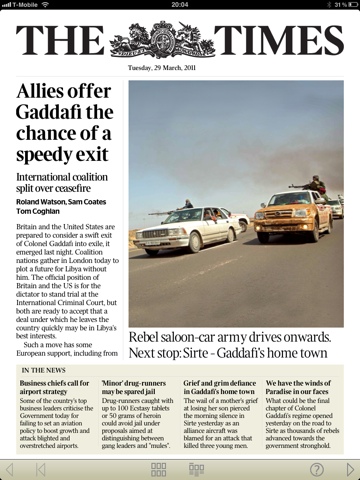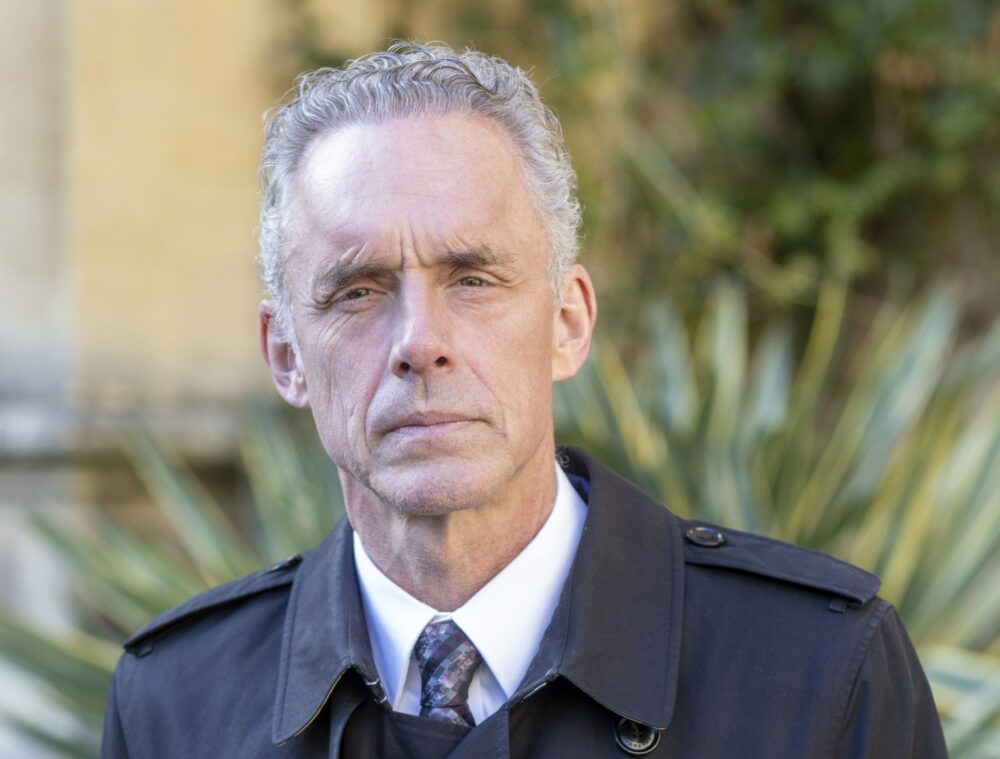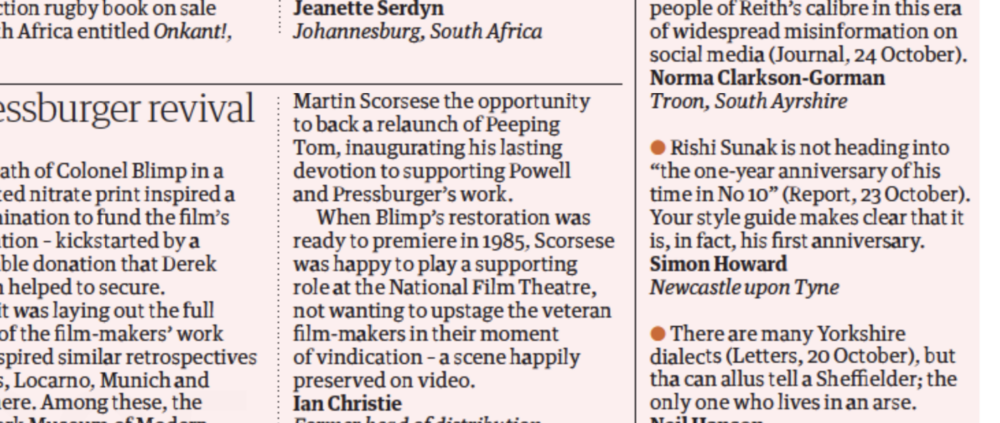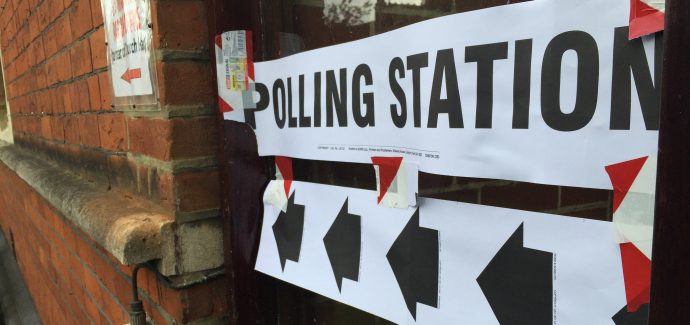I used to be a regular newspaper reader, and had The Guardian delivered daily for some years. But, in 2007 I moved to my current house and couldn’t find a newsagent who delivered. Being a lazy git, I can’t be bothered to take the hundred or so steps from my front door to the nearest shop to buy a paper, and so my readership lapsed.
Instead, I turned to getting my news online more and more. Especially via the Guardian website, where I could keep up with the writing of my favourite Guardian columnists right up until most of them left the paper, when my interest waned a bit.
Someone once said that from the outside, The Guardian looks like an exclusive club, and hence it struggles to build it’s readership. I think there’s some truth in that. I don’t feel the same connection to The Guardian that I once did. Nancy Banks-Smith’s TV reviews, Guy Browning’s columns, Anna Pickard’s columns, Gareth McLean’s thiny-veiled gossip columns, Emily Bell’s MediaGuardian leaders: These (and others) were the skeleton on which I hung my consumption of The Guardian, and once they evaporated there was nothing left but a mass of unstructured news I could get anywhere else. Heck, it’s not been the same since they axed Ros Taylor’s Wrap, and that wasn’t even a newspaper feature.
I guess what I’m trying to describe is my descent from Guardianista to media tart, moving from news outlet to news outlet depending on the news stories that were being hawked at any given time. And that’s pretty much where I am now. Google Reader gives me selected news from across the web, Twitter fills in the gaps, and I’m out of the habit of reading a single organ’s daily summary.
But then my iPad came along, and the opportunity arose to download The Times on a daily basis. And it is The Times – not some sliced and diced hint of the news, but an actual full-fat version of The Times formatted for the iPad, even including the crosswords and sudoku. And it is great.
One of the most important things about it is its release time. The Times has been available to download every day when I’ve woken up. I believe it’s released around 4am, but I’ve never bothered to wake myself up to check. Essentially, being there for the time I eat my cornflakes is what this app requires – and actually beats the paperboy who used to deliver.
 I didn’t used to like The Times’s journalism much. I used to read it quite a lot when it was a broadsheet, but when it switched to tabloid it seemed to simultaneously switch to picture-led storytelling, which is a danger of the format. It gained ‘silly’ page three features, true tabloid style, and lost a lot of the genuinely interesting Times 2 human interest stuff. I don’t know if / when any of that changed in the print version, but it certainly doesn’t seem to be the case so much in the iPad edition, which feels much more like The Times of old.
I didn’t used to like The Times’s journalism much. I used to read it quite a lot when it was a broadsheet, but when it switched to tabloid it seemed to simultaneously switch to picture-led storytelling, which is a danger of the format. It gained ‘silly’ page three features, true tabloid style, and lost a lot of the genuinely interesting Times 2 human interest stuff. I don’t know if / when any of that changed in the print version, but it certainly doesn’t seem to be the case so much in the iPad edition, which feels much more like The Times of old.
In iPad terms, the experience is great. Landscape viewing tends to work best for me, with my iPad propped up in its case. News articles cross pages, swiping from right to left, whilst more in depth features tend to have the header on the right-left swipe, with a downwards pagination for the rest of the article. Pictures are often linked to videos or slideshows, accessed with a tap. And a ‘contents’ pop-up bar allows jumping quickly to any part of the paper (or a quick review of the headlines). Like most descriptions of user-interfaces, that makes it sound awfully complicated. It’s really quite intuitive.
The nature of the beast is that copy tends to lag behind current events, but articles are sometimes updated over the course of the day, and on heavy-news days, an additional 5pm edition is published. Brilliant.
 Another benefit is the price… An online subscription, which includes access to the pay-walled website and the Sunday Times app costs £2 per week – bizarrely cheaper than the £9.99 subscription to the Times App alone.
Another benefit is the price… An online subscription, which includes access to the pay-walled website and the Sunday Times app costs £2 per week – bizarrely cheaper than the £9.99 subscription to the Times App alone.
But it’s not all good news. Because The Times is paywalled, there’s no social features. No ‘share this’, no ‘this is what others liked’, no ‘leave a comment’. It’s one-way communication, and feels a little out of step with modern life.
There’s also no search, which is a little bit of an odd omission, and there are ads – I’d estimate about five full pages per edition – though they’re easy enough to flick past and ignore.
Overall, I think the iPad experience of The Times is great, and I plan to stay subscribed. Whether that will change when The Guardian’s app is released later this month remains to be seen, but it will take something very impressive to blow The Times out of the water.
This is the first in a series of posts reviewing iPad Apps. Check back tomorrow for my review of the iWork Apps.






 I didn’t used to like The Times’s journalism much. I used to read it quite a lot when it was a broadsheet, but when it switched to tabloid it seemed to simultaneously switch to picture-led storytelling, which is a danger of the format. It gained ‘silly’ page three features, true tabloid style, and lost a lot of the genuinely interesting Times 2 human interest stuff. I don’t know if / when any of that changed in the print version, but it certainly doesn’t seem to be the case so much in the iPad edition, which feels much more like The Times of old.
I didn’t used to like The Times’s journalism much. I used to read it quite a lot when it was a broadsheet, but when it switched to tabloid it seemed to simultaneously switch to picture-led storytelling, which is a danger of the format. It gained ‘silly’ page three features, true tabloid style, and lost a lot of the genuinely interesting Times 2 human interest stuff. I don’t know if / when any of that changed in the print version, but it certainly doesn’t seem to be the case so much in the iPad edition, which feels much more like The Times of old. Another benefit is the price… An online subscription, which includes access to the pay-walled website and the Sunday Times app costs £2 per week – bizarrely cheaper than the £9.99 subscription to the Times App alone.
Another benefit is the price… An online subscription, which includes access to the pay-walled website and the Sunday Times app costs £2 per week – bizarrely cheaper than the £9.99 subscription to the Times App alone.